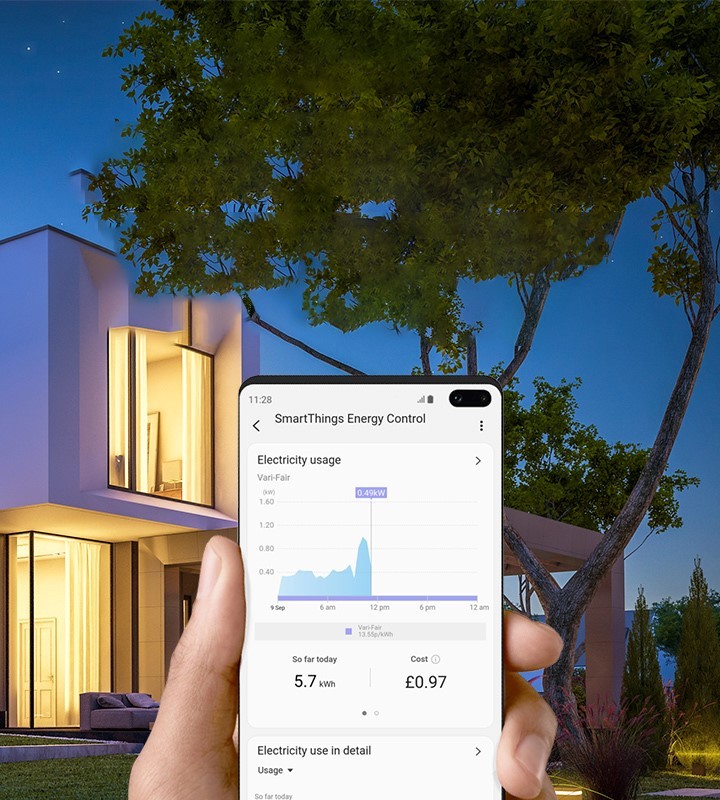Samsung, energy supplier Bulb and energy tech firm Chameleon have launched a new tool designed to help consumers make smarter, more energy efficient decisions at home.
The SmartThings Energy Control service is a free-to-download tool that runs from a smartphone app, helping connect users with their smart meters and make sense of their energy data and any potential smart home controls they possess.
In the app, consumers can view their energy usage “almost in real-time”, the companies say, and remotely schedule any smart appliances or tools to use energy at a more convenient or cheaper time.
The integration of smart home technology, smart meters and control systems represents a “huge leap forward” in smart home technology, the companies say, and represents a “natural next step” for consumers with smart appliances looking to make meaningful changes in their home energy consumption.
Chameleon has created a cloud data platform for the service which analyses, stores and connects energy data from smart meters for those registered. Logic is then performed on the data before a secure connection to the SmartThings Energy cloud is made. This connection allows instructions to be issued to other smart devices, allowing them to be switched on during periods of lesser demand.
In the coming months, the app will further integrate alongside Bulb’s Smart Tariff. Bulb’s members will be advised how much they can save by shifting their load to off-peak hours, and carbon intensity readings will also be supplied so consumers can make conscious, informed decisions as to when they can use ‘greener’ energy.
Teg Dosanjh, director of connected living for Samsung Electronics UK and Ireland, said that digital technologies stood to create the kind of behavioural change necessary to “really make a difference to people’s pockets”.
“This innovation takes us into a new era of smart when it comes to energy management. It’s about enabling access to that data in a way that feels natural to people so households are more empowered to make informed decisions about how to reduce and when to use their energy,” he said.
Hayden Wood, chief executive at Bulb, added: “Smart meters are a foundational element in making energy simpler, cheaper and greener. To make the most of them, our members need useful digital tools to help them understand their energy usage.”
A number of pilot projects and trials in the UK have explored the use of consumer-facing apps to stimulate behavioural changes with regards energy consumption, both with and without digital technologies and smart meters.
In August, KiWi Power launched what it claimed was a “first of its kind” residential demand side response pilot, centering around an app and a device installed on a participants’ electricity meter, which alerts consumers when demand is high and supply low.
Northern Powergrid also lauded a successful pilot programme in its service area, managed alongside software developer GenGame, which used gamification techniques and social media to trigger consumers to turn off various appliances during periods of high demand.





